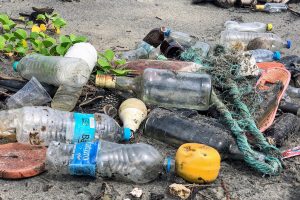Can We Develop Technology to Break Down Microplastics?

Humanity could vanish from the Earth right now, and our legacy would still linger for a thousand years. The world is waking to the reality of anthropogenic climate change, but that’s not the full story when it comes to how we’ve remade this planet in our image . Our obsession with plastic has flooded our environment with millions of tons of plastic waste, and every crevice of the planet is now filled with plastic fragments, small and large.
Continue reading